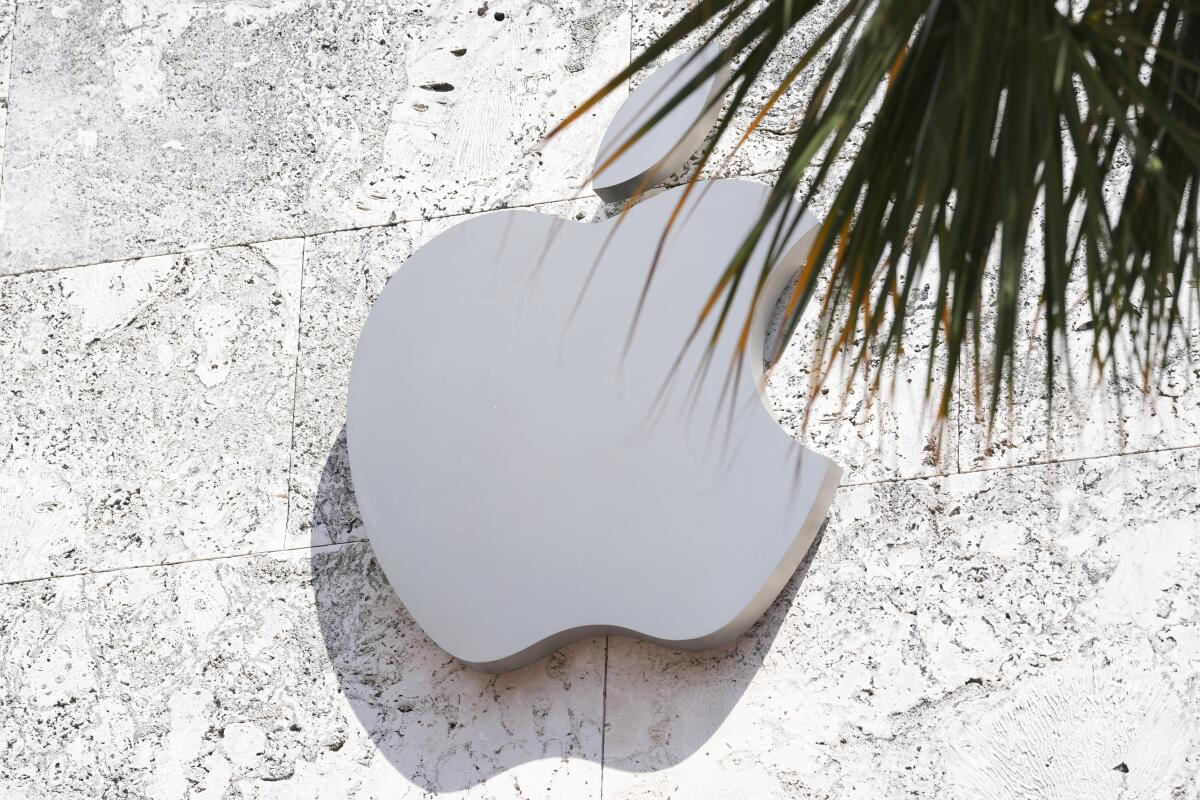Apple to pay $25 million to settle allegations of discriminatory hiring practices

- Share via
Apple has agreed to pay $25 million to settle allegations that it engaged in a pattern of discriminatory hiring practices when filling some of its jobs in 2018 and 2019.
The deal announced Thursday resolved a lengthy investigation by the Department of Justice into alleged violations of the Immigration and Nationality Act.
Federal regulators said an inquiry that began in 2019 determined that Apple’s hiring practices discriminated against U.S. candidates for jobs that were awarded to some immigrant workers seeking to be granted permanent resident status in the country. In some instances, Apple also discriminated against non-U.S. residents, according to the settlement.
Apple vehemently denied any wrongdoing in the formal seven-page settlement and defended its hiring record in a statement to the Associated Press.
“Apple proudly employs more than 90,000 people in the United States and continues to invest nationwide, creating millions of jobs,” the Cupertino, Calif., company said. “When we realized we had unintentionally not been following the DOJ standard, we agreed to a settlement addressing their concerns.”
Medical device entrepreneur Joe Kiani is on a mission to stop Apple from crushing smaller competitors. His lawsuit could get the Apple Watch banned from being imported into the U.S.
The $25 million represents a paltry amount for Apple, which generated $383 billion in revenue during its last fiscal year, which ended Sept. 30. Most of the settlement amount — $18.25 million — will be funneled into a fund to compensate victims of Apple’s alleged discrimination. The rest of the money covers the fine that Apple is paying for its hiring practices during the time frame covered in the settlement.
More to Read
Inside the business of entertainment
The Wide Shot brings you news, analysis and insights on everything from streaming wars to production — and what it all means for the future.
You may occasionally receive promotional content from the Los Angeles Times.











